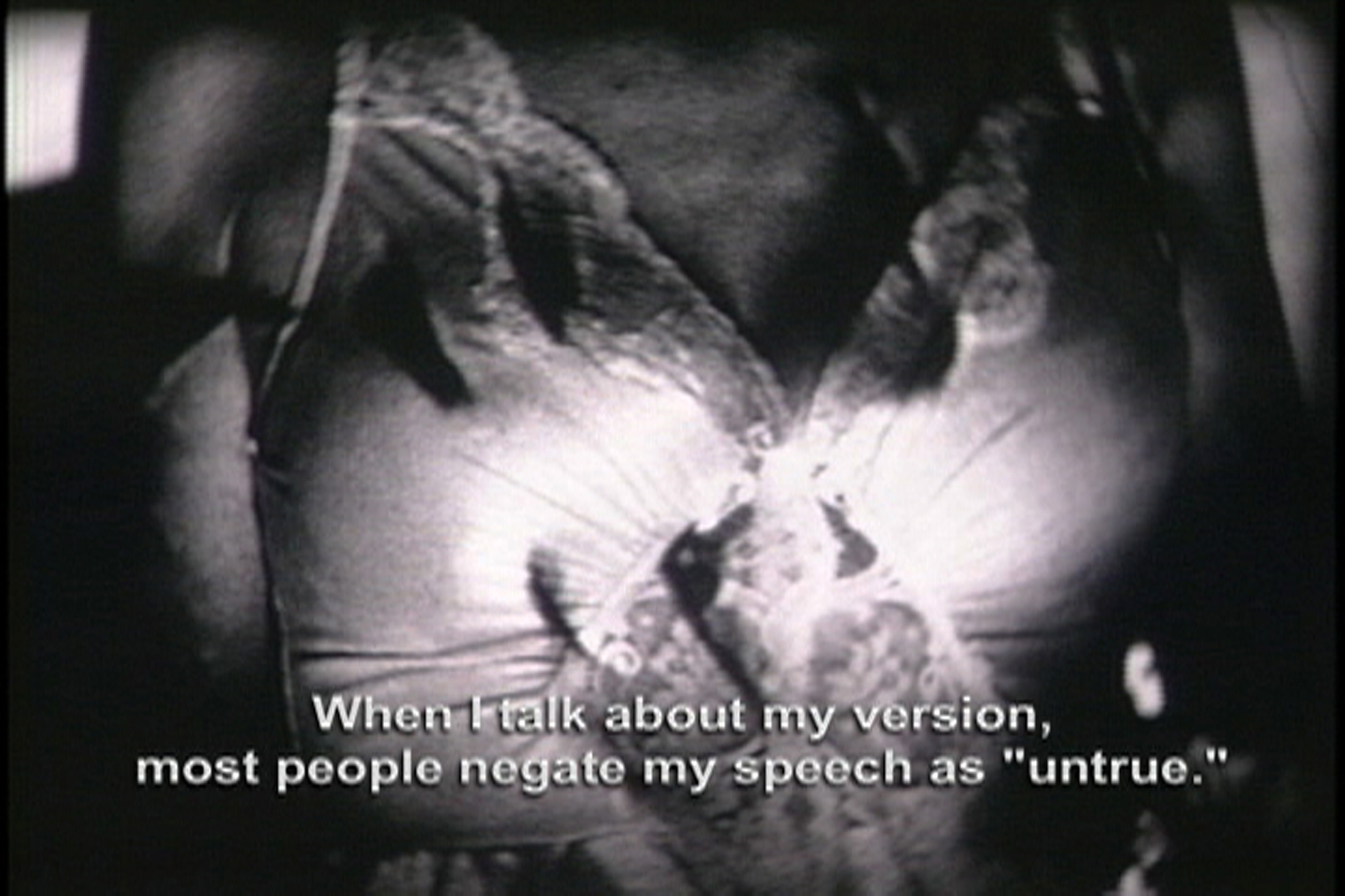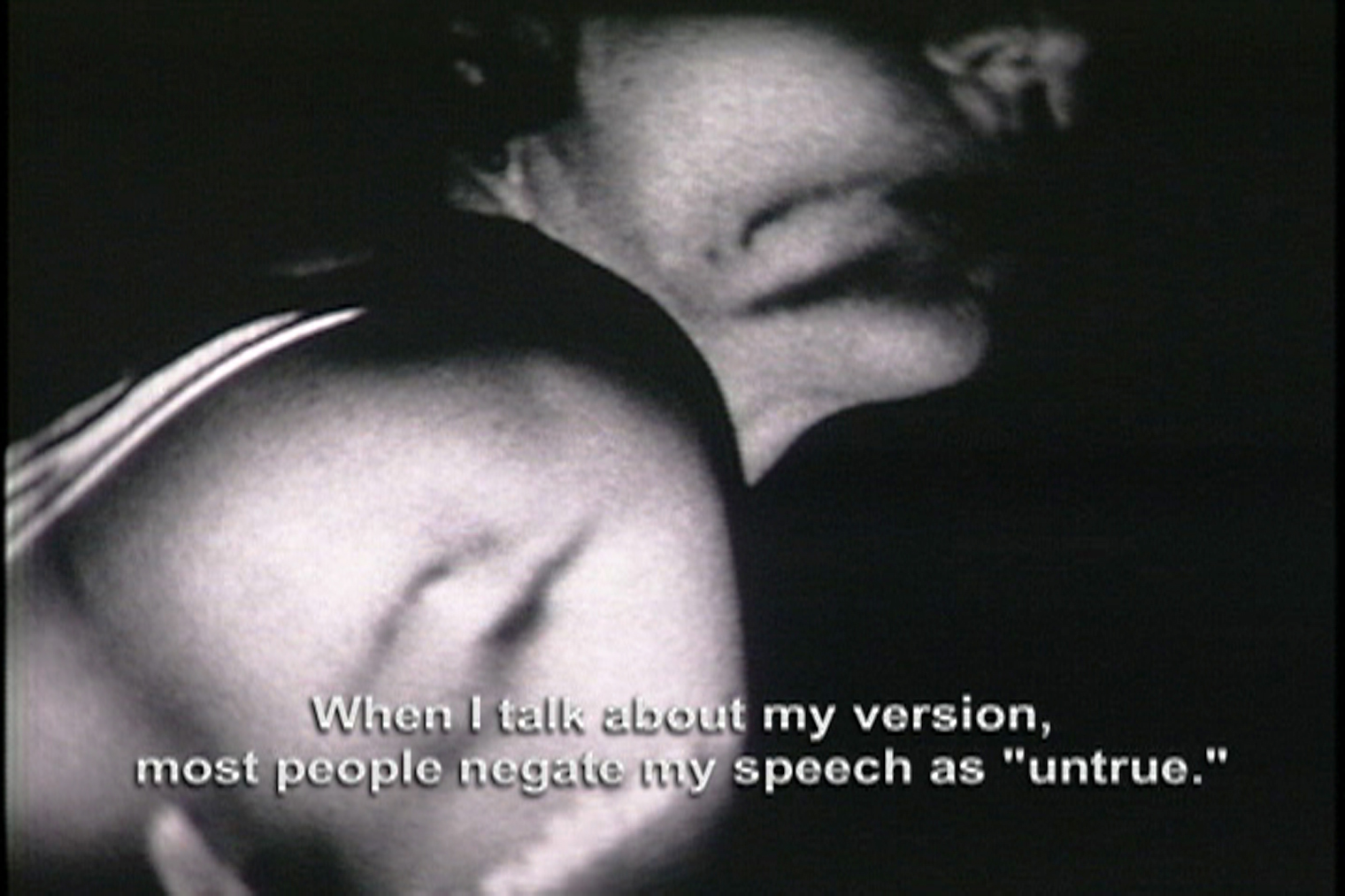2005, 70min, video work
Foreign Sky is a film that is composed of several different historical documents. The historical account of those archival materials weaves a personal story of growing up as a north Korean minority in Japan.
Kum deconstructs images we ordinarily find in our everyday lives and reweaves them through her fictional storytelling of North Koreans in Japan.
自身の記憶や家族史を辿り、朝鮮コミュニティの歴史を紡ぐ。第二次大戦中そして戦後の祖父母の日本での日々、監督の朝鮮学校に通った学校時代…。そこで培った歴史は、日本やアメリカの公式の歴史とは一致することはない。現在にまで到る資料映像と個人の日記、北朝鮮に住む親戚からの手紙と監督自身の手による映像詩が絡まり、ひとつの物語を繊細に編み込む。
刻まれたいたみの記憶は外に出さないとその刻印をより深く刻んでいく。生きていくうえで、落としていく必要があったイメージ達をその場その場でフィルムに落としていった。もう見たくはないその映像達はそれでも私をより自由にしてくれた。
Click the play button ▶︎ to view in autoplay mode. Or you can directly click on the image to advance to the next images.
Format: Experimental Documentary, DV, NTSC, Color, 70 min, 2005
The filmmaker is a third-generation Korean who grew up in a North Korean community in Japan. After liberation from the Japanese, Koreans living in Japan had two choices of citizenship to take, North or South. Today, 152,900 North Korean refugees live in Japan as a result of Japanese colonialism. The story of the North Korean community is told by tracing her memory and her family history. Her grandfather was drafted as one of the Koreans who became Japanese soldiers to be used as bullet shields to protect the real Japanese soldiers. Later he miraculously returns from the Philippines to work, collecting scrap metals in Japan. Ironically, those metals were used to make weapons and machines during the Korean War killing his own people. As he realizes this, he starts anti-war protest among the factories and gets imprisoned by the Japanese for his actions because the production of war machines for the Korean War was the foundation of the post-war WW II Japanese economy. Korean refugees in Japan played an important role in the reconstruction of North Korea because North Korean infrastructures, capital, and the labor force were totally annihilated by the United States military during the Korean War. In return, the North Korean government provided schools and support for the Koreans in Japan who are facing severe discrimination from the Japanese. The filmmaker attended these North Korean schools since she was a child. When she left her community, their memory and history do not correspond to the official record of history, since North Korea is known in the first world only through images of starving children and a fanatic dictator. As the president of the United States call North Korea and Iraq an “Axis of Evil”, discrimination against the Koreans turn into actual physical violence, especially against women who wear Korean dress as a school uniform as a symbol of resistance against the Japanese. With found footage rarely seen outside the North Korean community, the filmmaker weaves her personal diaries, and letters from relatives living in North Korea with poetic images of her own to create an alternate fictional narrative. A narrative that is usually associated with terrorism and the other side of Machiavellian principles of good vs. evil.
REVIEW
Lucy M. San Pablo Burns (Assistant Professor at UCLA)
This experimental documentary film is highly complex with its varied images and narrative voices. Kum effectively highlights these different perspectives, portraying narration and temporality distinctly with the varied footage and images. The artist’s video and film work deal with the way the individual body intersects with the political body-hence the intersection of her memory and family history with state official history.
Foreign Sky, full movie, 70min
*The video can be watched with a donation-based contribution.
Please make an inquiry via the contact page.













